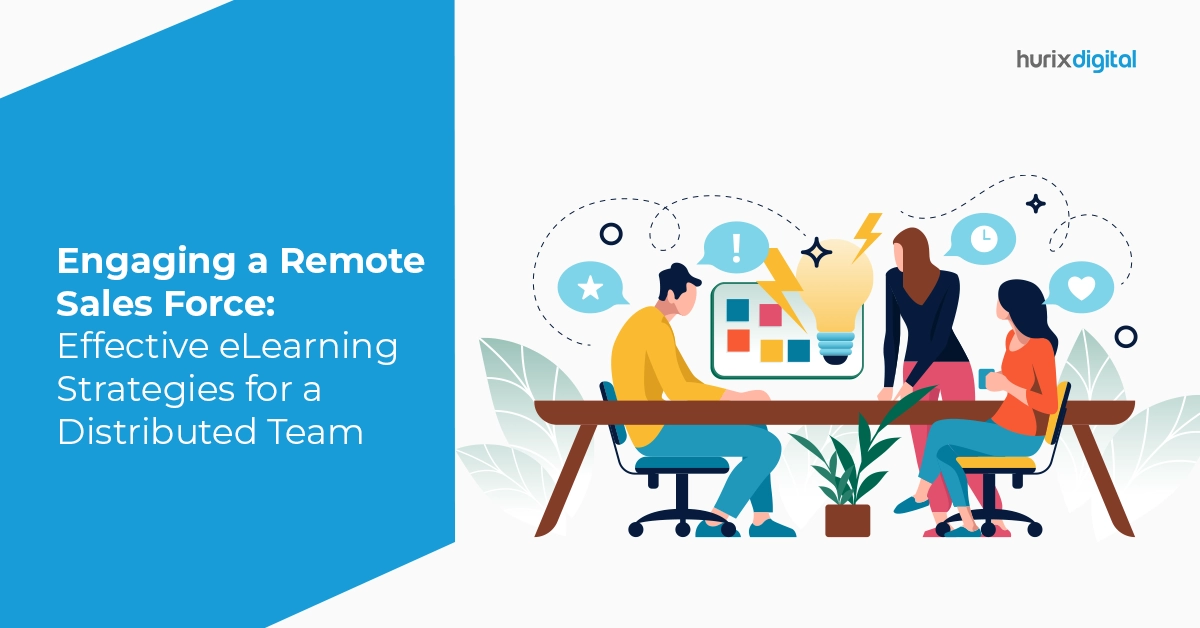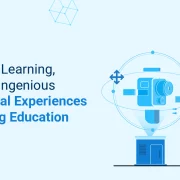
How To Deliver Soft Skills Training To Sales Employees
While the importance of relevant job experience, education, and technical training in defining the success of sales employees is huge, mastering less tangible abilities like soft skills is equally important. This is why an increasing number of organizations are investing in employee learning and development initiatives to ensure that they can work together as a team for the benefit of their employees and the organization’s success.
A well-trained sales team is more equipped to generate new opportunities, which can lead to enhanced growth and huge returns for the organization. The better trained your sales employees, the better chances of success for the entire organization.
In this blog, we explore the need for soft skills training for sales employees and some of the effective ways to deliver the same.
What are Soft Skills?
Soft skills primarily focus on who people are, as opposed to what they are trained in. In simpler words, soft skills are interpersonal skills that reflect an individual’s personality and characterize how they interact with peers and other people in the workplace.
Typically, soft skills are an individual’s personality skills, people skills, and communication abilities which play a crucial role in the workforce setting for the long-term success of both employees and the organization.
Some of the key soft skills that every salesperson needs to have include:
-
Empathy
Empathy is one of the key skills that sales employees need to possess. Simply put, empathy is the ability of a person to feel what the other person is feeling. It enables sales employees to better understand and share their customers’ feelings, and once they have a better sense of where their customers or prospects are coming from, they are better positioned to serve them.
-
Active Listening
This one might sound simple, but it’s tough in practice. The ability to become an active listener translates to letting the other person speak patiently before offering your viewpoint. It’s quite impossible to ace other soft skills such as adaptability and collaboration without having the ability to listen.
-
Growth Mindset
Another important skill for salespeople, having a growth mindset allows sales staff to believe that they can improve their innate abilities and learn various new skills through practice, hard work, consistency, and time.
-
Adaptability
Adaptability in modern workplaces is essentially the ability to be flexible in their approach and take on new challenges. In a rapidly changing business market, employees can’t afford to grow complacent with their existing skillsets and hence being adaptable is a key skill to have.
-
Communication
Both written and verbal communication skills are responsible for how co-workers perceive an employee or individual’s capabilities and contributions to the overall organization. The ability of an employee to communicate effectively makes them much more productive in the workplace environment while also making it simpler to build relationships and collaborate across the organization.
How to Deliver Soft Skills Training to Sales Employees
Here are some of the effective ways you can use to deliver soft skills training to your sales employees:
-
Create Targeted Content That Will Make a Difference
Building a powerful soft-skills training program might seem like an uphill task, but if you’re creating targeted, high-quality training solutions catering to the unique needs of your sales employees, then you already have a wealth of resources about your specific industry and expertise to make a difference.
Having excellent soft skills makes it easier for your sales team to navigate professional situations better. Therefore, you need to be thoughtful when deciding the types of skills your team needs and accordingly create content to cater to their needs and strengthen their sales abilities. This allows you to support your learners’ professional as well as personal development and empower your team members to think independently, work collaboratively, and resolve conflicts within the organization.
-
Leverage Mobile Learning and eLearning
With an increasing number of organizations going global today, soft skills training for sales teams needs to transcend the barriers posed by location and language. Getting the entire sales team together for physical classroom training is next to impossible. Hence, the best option here is to invest in mobile training and eLearning.
The benefits of mobile learning are immense. It allows employees to conveniently access the training program designed to improve their soft skills from their smart devices at their convenience. Further, mobile and online learning also gives them the freedom to learn at their speed, and access training content for specific areas where they feel they need more assistance. Organizations need to focus on creating mobile learning content for effective training delivery.
-
Provide Bite-Sized Learning Modules
Traditionally, micro-learning or bite-sized learning has been used by organizations to improve soft skills such as leadership skills, listening skills, communication skills, problem-solving skills, and more. Depending on the varying needs of sales employees, these modules can address the basics of a topic/subject and aid in better information retention.
Microlearning is especially suited for imparting soft skills to employees with short attention spans. Further, enhanced usage of smart devices and the tech-savviness of present-day sales staff make these bite-sized courses an ideal choice to deliver soft skills training.
-
Use AR and VR
In the absence of in-person training opportunities, virtual reality is another promising solution that businesses can use to help their employees develop vital soft skills. Unlike other traditional e-learning solutions, AR/VR tools including training simulations and scenario-based learning offer sales employees a truly immersive experience that helps keep them engaged by mimicking real-life situations in a safe environment.
Apart from being highly interactive, simulations can also be easily customized to fit the specific business and growth goals of sales staff. The best part of simulations is that they allow sales teams to work at their own pace and retake specific modules as many times as needed.
-
Gamify the Training Process
Game-based learning is yet another effective method to deliver soft skills training. This is simply because it allows sales teams to understand the content better.
Gamififying your learning platform also allows you to efficiently engage and motivate employees to explore, discover, and apply the relevant information while having fun. Further, gamification helps increase sales teams’ productivity manifolds by balancing learning outcomes with gameplay.
-
Monitor Learning Habits and Progress
Monitoring learning habits and progress is a great way to deliver soft skills training as it allows you to identify knowledge gaps and improve your training material. Apart from this, it also enables you to offer insights to each employee on what they should improve for creating personalized learning opportunities, thus increasing each employee’s contribution.
To Conclude
Developing an efficient and successful sales team is the priority of every business. The best way to do this is by investing in an ongoing sales training program that focuses on both technical as well as soft skills. It will ensure that you build a team of skilled sales professionals who are efficient in closing deals and building key customer relationships, thus leading to higher customer retention and recurring revenues for the business.
Employing the services of Hurix Digital ensures a customized learning module for your employees. Get in touch with Hurix Digital today!







